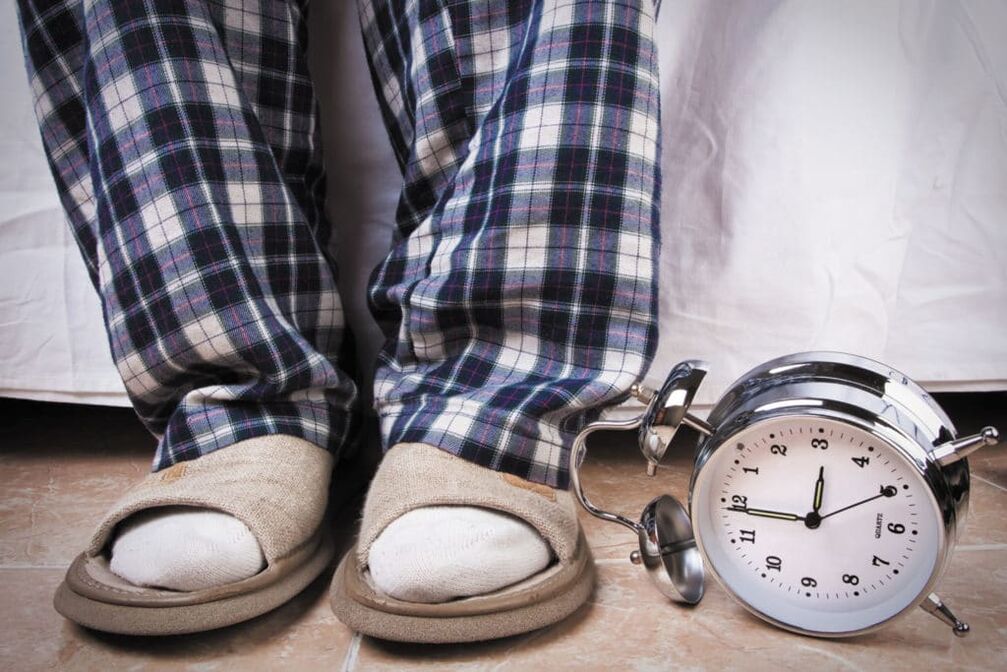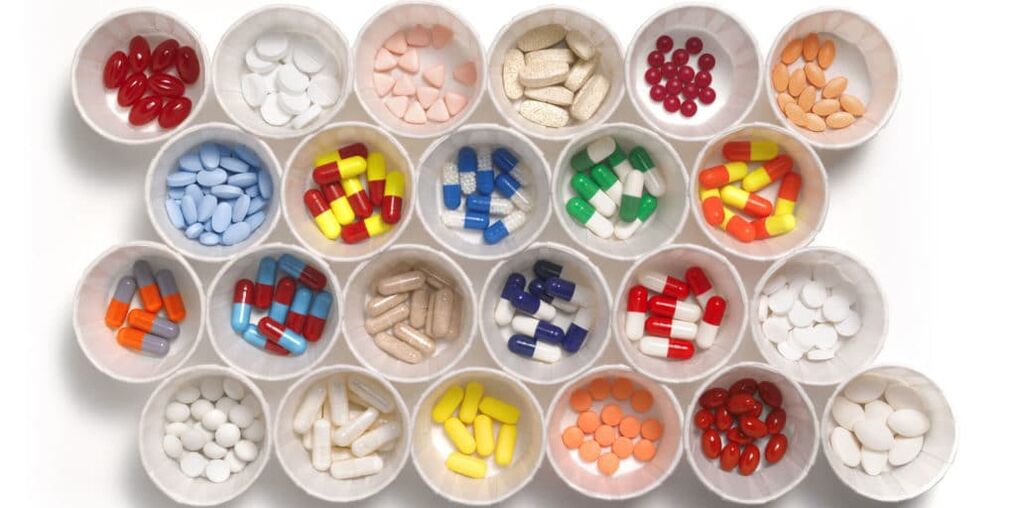Prostatitis is an inflammatory disease of the prostate gland that mainly affects older men. According to statistics, one form or another of the disease is diagnosed in almost 40% of men over 50 years old. Congestive prostatitis is a non-infectious inflammation of the prostate caused by a violation of organ trophism.
What is congestive prostatitis?
Congestive prostatitis develops due to violation of trophic processes in the prostate gland and pelvic organs. Trophism refers to all the metabolic processes that take place in the organs - blood circulation, lymph movement, dynamics of prostate secretion.
The disease is characterized by a series of specific symptoms, the appearance of which is caused by edema of the inflamed organ. Due to the stagnation of secretion in the prostate, its lobules do not empty completely, which leads to inflammation and enlargement of the organ. As a result of these processes, the prostate presses on the bladder and urethra, which explains the onset of symptoms of the disease.
Unlike the acute form of inflammation, provoked by disease-causing agents, congestive prostatitis can persist for many years without severe symptoms. During this period, there is a gradual violation of prostate trophism, the organ is impoverished and over time the disease is felt with a sudden deterioration.
Congestive prostatitis is usually diagnosed either accidentally, during a routine examination by a urologist, or at the moment of an irritation, when a man is experiencing pronounced symptoms.
The disease requires complex long-term treatment. The prognosis for cure depends on the timely detection of congestive prostatitis. In some cases, men live for decades with chronic inflammation, forced to undergo regular treatment to avoid exacerbations of the disease.

Stagnant prostatitis develops asymptomatically for years. Even his treatment will take a long time.
Reasons for development
Congestive prostatitis or chronic non-infectious prostatitis is a direct consequence of poor lifestyle choices. Disruption of metabolic processes in the prostate takes place over a long period of time. The causes of the disease are:
- hypodynamics;
- obesity;
- improper nutrition;
- sexual abstinence;
- chronic stress;
- bad habits;
- phleburism;
- chronic constipation.
The main enemy of prostate health is physical inactivity. Lack of physical activity leads to deterioration of blood circulation in the lower part of the body, including the pelvic organs, which over time provokes thickening of prostate secretions and the development of an inflammatory process.
Physical inactivity, loaded with too much excess weight, is a direct route to prostatitis. It is not in vain that congestive prostatitis is believed to be a disease of office workers, as it is the long hours of sitting at the desk that lead to circulatory disorders in the pelvis and prostate.
Chronic stress, decreased immunity and hypothermia in the lower body are all indirect causes of prostatitis. With a stagnant, slow inflammatory process, these factors act as triggers for a worsening of the disease symptoms.
Another enemy of men’s health is chronic constipation. Difficulty, irregular bowel movements lead to the fact that dense stools, passing through the intestines, irritate the prostate. At the moment of bowel emptying, the trophism is disturbed. With rare constipation, this is not dangerous, but regular defecation disorders lead to prostate irritation with subsequent development of prostatitis.

Congestive prostatitis is a common problem for office workers.
Why is prostatitis dangerous?
Congestive prostatitis is associated with specific symptoms that significantly impair a man's quality of life. In addition to constant anxiety, the disease progresses, which leads to the development of dangerous complications.
First of all, potency suffers. Violation of blood circulation, thickening of secretions and impaired contractile function of the prostate gland leads to the fact that sex does not bring pleasure, but is accompanied by discomfort and pain. Over time, the problem worsens, therefore, in addition to the weakening of sexual desire, erectile dysfunction also appears. Blood does not flow to the penis in sufficient volume, which leads to a weakening of the erection and threatens erectile dysfunction.
Congestive prostatitis can cause infertility in men.
A fairly common complication of slow inflammation is urinary incontinence, which can cause kidney and pyelonephritis infection.
Lack of timely therapy for congestive prostatitis can lead to the formation of stones in the prostate gland, the removal of which often requires surgical intervention.
Symptoms of the disease
Symptoms of congestive prostatitis are manifested by impaired urination. Outside of a worsening of the disease, the person feels heaviness in the bladder, frequent desire to use the toilet and a weakening of urine pressure. Occasionally there may be pain in the bladder, which spreads to the lower abdomen and perineum. The pain is spastic in nature, spasms appear and subside.
With congestive prostatitis in men, there are problems with strength and ejaculation. In this case, an increase in the duration of sexual intercourse and premature ejaculation is possible. The peak is accompanied by pain in the urethra.
Signs of inflammation of the prostate gland with congestive prostate intensify at the moment of irritation. This occurs against a background of decreased immunity, severe stress, overwork or hypothermia. The symptoms are acute. The number of urges to urinate can be up to 8 times per hour. Emptying the bladder does not bring relief, as it feels heavy and full. The pain syndrome appears acutely, there is a feeling of heaviness in the rectum, which is caused by prostate edema. In rare cases, the appearance of hematuria - blood in the urine is possible. After urination and ejaculation, there is pain and a strong burning sensation in the urethra.
Congestive prostatitis is not a bacterial inflammation, therefore, a rise in temperature with this form of the disease is extremely rare. However, due to the constant disturbance in the perineum, symptoms of the general disease are observed - drowsiness, irritability and loss of strength. Very often, the course of congestive prostatitis is aggravated by insomnia due to increased desire at night to use the toilet, which is caused by swelling of the prostate in the evening and at night.

Frequent urination does not provide relief or sleep
Diagnosing
Congestive prostatitis is diagnosed by a rectal examination of the prostate gland by a urologist. This is done with prostate massage or TRUS.
Ultrasound diagnosis is considered a non-informative method, as it indicates the presence of inflammation, but not the nature of its development. For this reason, the most informative is the analysis of prostate gland secretion. Due to the nature of changes in the composition of prostate secretion, congestive prostatitis and its complications are diagnosed.
To rule out adenomas and other disorders, an MRI of the prostate is also recommended.
The principle of treatment
Treating congestive prostatitis is a long process. The therapy aims to relieve inflammation and edema, improve urodynamics and restore metabolic processes in the body.
In addition to specific therapy, patients are prescribed diet, exercise therapy, and physiotherapy. All these methods pursue one goal - to normalize the flow of prostatic secretions and improve blood circulation in the body.
Drug therapy
With congestive prostatitis, treatment includes symptomatic and specific therapies.
Symptomatic treatment includes the use of antispasmodics, analgesics, and nonsteroidal anti-inflammatory drugs. Such drugs can relieve pain and discomfort, improve urination, but do not affect the functioning of the prostate gland.
Unlike infectious prostatitis, with congestive inflammation in the secretion of the prostate gland, no pathogens are detected, therefore antibiotic therapy is inappropriate.
For treatment are used:
- blocking alpha;
- antispasmodics;
- non-steroidal anti-inflammatory drugs;
- phytopreparations;
- rectal suppositories to restore prostate functionality.
Taking alpha-blockers helps improve urodynamics. These drugs have a relaxing effect on the muscles, lowering the bladder tone, which makes urination easier. With congestive prostatitis, treatment with these drugs is practiced in a short course, due to the large number of side effects.
To relieve inflammation, non-steroidal anti-inflammatory drugs are used in the form of tablets or rectal suppositories. The treatment lasts no more than a week, 1-2 suppositories per day. Reduces inflammation and swelling of the prostate gland, as well as relieves pain. NSAID injection can also be practiced, but only as instructed by a physician.
Conventional antispasmodics can help relieve pain in the bladder and perineum. The drug is taken as needed, but not more often than three times a day, one tablet.
The main part of the treatment of congestive prostatitis is the use of herbal medicines, vitamins and immunostimulants, the action of which is aimed at restoring the prostate gland.
Therapy can be supplemented with phytopreparations in candles with bee products in the composition, ichthyol or pumpkin seed oil. These drugs can be purchased at the pharmacy or prepared yourself. They have anti-inflammatory properties and stimulate the immune system.
You should consult your doctor about how to treat congestive prostatitis. The duration of treatment depends on the severity of the symptoms, but usually lasts at least three months.

The main goal of therapy is to restore glandular trophism.
Folk remedies
You can supplement the treatment with folk remedies. The following recipes will help cure prostatitis.
- Eringium or erythematosus with congestive prostatitis can relieve inflammation and speed up prostate recovery. The root of the plant is used for treatment. Dry and cut with a knife. Then 30 g of roots are thrown with three cups of hot water and boiled on low heat for half an hour, avoiding boiling. Filter the liquid and take half a glass every day for a month.
- Candles with propolis and honey will help relieve inflammation. To prepare it, melt 200 g of baldose fat, add 40 ml of propolis solution and a tablespoon of honey. The mass is poured into adhesive film and left in the refrigerator. When the product has hardened, cut it with a knife into small pieces the shape of a torpedo as small as a finger. These suppositories are stored individually in the refrigerator. The treatment lasts three weeks, suppositories are inserted into the anus at night, 1 per day.
- For the preparation of medicinal candles, you can use cocoa butter and pumpkin seed oil. Percentages - 10 ml of pumpkin seed oil per 100 ml of cocoa butter.
Folk remedies can also be used to prevent worsening of prostatitis. In this case, the course of treatment is reduced to two weeks.
Massage and physiotherapy
With congestive prostatitis, prostate massage and physical therapy are prescribed to improve circulation. The massage is done in courses of 10-15 procedures.
Physiotherapy methods are chosen by a doctor. Usually, acupuncture, hirudotherapy, electrophoresis, magnetotherapy, darsonvalization are practiced with the prostate. A good effect is achieved with ultrasound and shock wave therapy.
In addition, there are a number of machines for treating prostatitis for home use. Before buying such a device, you should consult your doctor.
Lifestyle and prevention
Avoiding bad habits and a balanced diet will help speed up recovery from prostatitis. Natural prostate protectors should be included in the diet - pumpkin seeds, pumpkin seed oil, honey, citrus fruits, nuts.
You need to normalize your daily routine and exercise regularly. An important role in the treatment of congestive prostatitis is assigned to regular sexual activity, as sex eliminates the cause of the development of the disease - stagnation of prostate secretions.
Once you understand what congestive prostatitis is, you need to know how to prevent its development. Disease prevention is reduced to a careful attitude towards their health. For the prostate to be healthy, it is necessary to provide itself with moderate but regular physical activity, to prevent hypothermia of the pelvic organs and to strengthen the immune system.
























